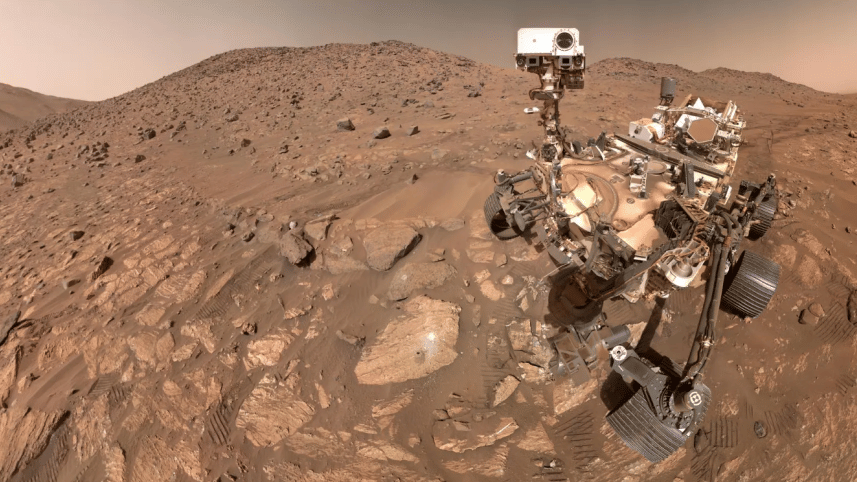NASA rover finds possible traces of ancient life on Mars

NASA's Perseverance Mars rover may have uncovered evidence of ancient microbial life on Mars, according to research published on September 10 in Nature, the scientific journal.
According to NASA, the findings come from a rock sample collected in Jezero Crater, an ancient dry riverbed that once carried water into the planet's basin. The rock, named 'Cheyava Falls', was sampled in 2024 during the rover's exploration of a formation called Bright Angel.
The sample, now referred to as "Sapphire Canyon," contained chemical compounds and mineral patterns that scientists say could represent potential biosignatures, features that may be linked to biological activity but require further analysis before any conclusions about life can be drawn, as per NASA.
Perseverance's instruments detected organic carbon, sulfur, phosphorous, and oxidised iron within the sedimentary rocks, elements that on Earth can support microbial metabolisms.
Researchers also identified iron-rich minerals, including vivianite (hydrated iron phosphate) and greigite (iron sulfide), which are known to form in association with decaying organic matter or microbial processes. These mineral signatures, however, can also be produced through non-biological reactions, leaving the evidence inconclusive.
The surprise, scientists noted, was that the evidence came from relatively young sedimentary rocks, challenging earlier assumptions that only older Martian formations might preserve signs of life. If confirmed, the discovery would suggest Mars remained habitable later in its history than previously believed.
Perseverance, which has been operating in Jezero Crater since 2021, has now collected 27 rock cores for study. NASA plans to continue its investigations, while also using the rover to prepare for future human missions by monitoring environmental conditions and testing materials for potential use in spacesuits.



 For all latest news, follow The Daily Star's Google News channel.
For all latest news, follow The Daily Star's Google News channel.
Comments